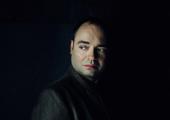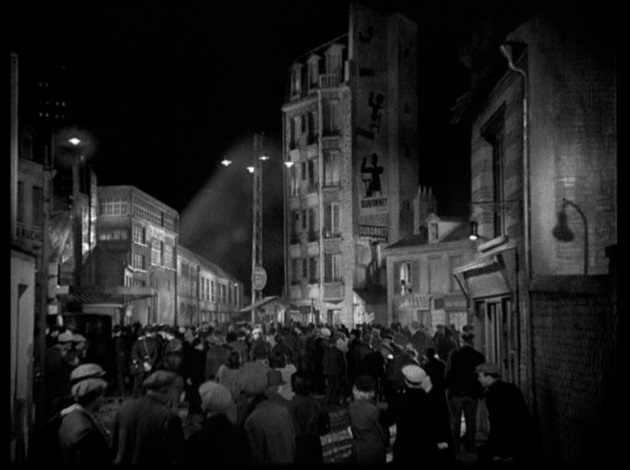Agnès Poirier: Left Bank review - Paris in war and peace



One question dominates any staging of Dialogues des Carmélites. How will the production team deal with the cruelty and tragedy in the 12th and last scene when all of the nuns, one by one, go through with their vow of martyrdom and calmly proceed to the guillotine, singing the Salve Regina? No spoilers here, but this new production at Guildhall School (a very different one from that staged in 2011) sticks to a tone which is calm, and humane.

Don’t you just love that new concert hall smell? The main hall at the Royal Birmingham Conservatoire is so new that as soon as you walk in you get the scent of fresh woodwork; so new, in fact, that it won’t even be officially opened until next month (Mirga Gražinytė-Tyla and the Earl of Wessex are doing the honours, apparently).

Happily, there’s hope for Spiral junkies – as series six ends, we bring you news that series seven has just gone into production. This is just as well, because these last dozen episodes have been an object lesson in how to make TV drama for the mind and body, nimbly evading cop show genre-pitfalls to bring us carefully-shaded characters operating within a Venn diagram of overlapping grey areas. Big kudos, yet again, to showrunner Anne Landois.

Living-museum recitals on a variety of historic instruments pose logistical problems. Telling The Arts Desk about his award-nominated CD of mostly 19th-century works for horns and pianos, Alec Frank-Gemmill remarked on the near-impossibility of reproducing the experiment in the concert-hall: playing on four period horns would need several intervals, and colleague Alasdair Beatson would hardly be likely to have the four pianos in the same room.

We’ve seen some “interesting” series filling BBC Four’s celebrated Saturday evening slot recently, which if nothing else have prompted plenty of below-the-line discussion. Happily, we can now turn our backs on all that and hail the return of the ace Paris-based French cop show Spiral.

The city of love provides a backdrop for marital discord and worse in Belleville, Amy Herzog's celebrated Off Broadway play now receiving a riveting British premiere at the Donmar.

Bertrand Tavernier’s trip through French cinema is shot through with the love of someone who has grown up with cinema and knows how to communicate his passion in a way that is totally engaging. The three hours-plus that he delivers make you want to plunge back into the classics, as well as start discovering many underrated or forgotten directors, actors, DoP’s or film score composers.
What makes the documentary so good is his 100% personal approach – although he is touchingly modest and includes contributions from many of his professional colleagues. It is not a completist’s bible or an attempt at cinema-historical balance. Rather like David Thomson’s unreservedly subjective and opinionated Biographical Dictionary of Film, this is a treasure trove of enthusiasms, presented with a keen knowledge of what underpins the language of great cinema. Tavernier celebrates well-known directors such as Jacques Becker, Jean Renoir, Marcel Carné, Jean-Pierre Melville and Claude Sautet, but he focuses as well on lesser-known directorial talents such as Edmond T Gréville who split his remarkable career between England and France, and many of whose masterpieces, such as Menaces or Brief Ecstasy aren’t available on DVD.
 The recurrent figure in Tavernier’s pantheon is Jean Gabin, the French acting icon from the 1930s through to the early 1960s, much more subtle than Depardieu in his depiction of the ordinary Frenchman. As Tavernier demonstrates with many carefully chosen clips, enhanced by an always eye-opening and thought-provoking commentary, Gabin was as fine an actor as any, not just the personification of a nation’s better self.
The recurrent figure in Tavernier’s pantheon is Jean Gabin, the French acting icon from the 1930s through to the early 1960s, much more subtle than Depardieu in his depiction of the ordinary Frenchman. As Tavernier demonstrates with many carefully chosen clips, enhanced by an always eye-opening and thought-provoking commentary, Gabin was as fine an actor as any, not just the personification of a nation’s better self.
There are delightful quirks, such as his celebration of the tough-guy actor Eddie Constantine, best-known to British audience for his ironic self-referential role in Godard’s Alphaville, but a regular fixture in a series of often very violent gangster films of the 1950s, which Tavernier greatly enjoyed. He rhapsodises as well about Maurice Jaubert, the film composer, not least the score he wrote for Jean Vigo’s classic L’Atalante. In describing the way in which Jaubert managed to add a dramatic dimension to key scenes of the films he worked on, rather than just fill gaps, Tavernier gives us a lesson in film technique, just as he does in describing the outstanding work of other craftsmen working in the medium.
The film is never didactic, although always surprisingly informative. Tavernier’s exploration of French cinema is made entertaining by a wealth of revealing anecdotes – not least, during the making of Le jour se lève, designer Alexandre Trauner’s insistence that Carné and his producers build an extra floor onto the house (pictured above) which plays such a crucial part in the drama. What stands out perhaps most of all is an extraordinary generosity of spirit – this is a man who can speak about others in his profession with great respect, rare in a milieu where ego rules a great deal of the time. That generosity is contagious: this is a film where the man’s love of the medium is fully shared with his audience. Highly recommended to anyone interested in le cinéma français.
Overleaf: watch the trailer for A Journey Through French Cinema

Utopias have a way of going up in flames. Rachel Hewitt’s new book, A Revolution of Feeling: The Decade that Forged the Modern Mind, charts the revolutionary fervour and disappointment provoked over the course of the 1790s by looking at the decade through the biographies of five of its optimistic luminaries — Samuel Taylor Coleridge, Mary Wollstonecraft, William Godwin, Thomas Beddoes, and Thomas Wedgwood.